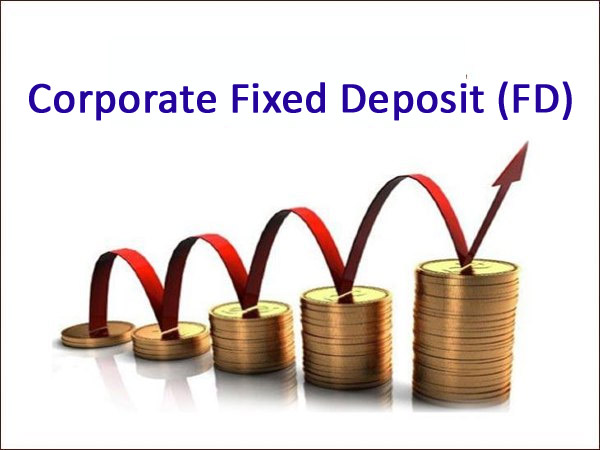What Are Corporate Fixed Deposit? Know the Features and Benefits of Corporate FD
The most popular investment instrument among Indians are Fixed deposits. It doesn’t matter if it is for short-term savings, steady returns, or low-risk savings methods; FDs have always been considered to be the best savings option for investors of all kinds. However, over the past few years, low rates of bank FDs have been a cause of concern with short-term investors. This has forced many to look for higher returns and moderate safety alternatives. As a result, corporate FD (Fixed Deposits) has become the new favorite, and let us look at its details for better understanding.
What are Corporate Fixed Deposits?
Like bank fixed deposits, many corporate companies, NBFCs, and financial institutions collect funds from the public and deposit them for a fixed term, and pay fixed interest. The deposits collected by firms are referred to as corporate fixed deposits similar to banks; they also provide interest on the amount invested. Still, it is often higher than the FDs offered by banks.
Let’s say you have kept a large amount of surplus cash in the bank’s savings account, but your savings account can give you just a 3.5 percent return. To diversify your portfolio, another investment option is to invest in bank FDs and corporate FDs. While Bank FDs provide a 5-5.5 percent return, the company fixed deposit rates are slightly higher, with 7.5-8.5% for a one-year to five-year deposit, at an increased risk level. Here are company fixed deposits rates 2021 of some popular companies for a better understanding of returns:
|
Name |
FD Interest Rate (%) |
Tenure |
| ICICI Home Finance FD | 5.70% – 6.65% | Between 12 and 120 months |
| HDFC Ltd. FD | 5.50% to 6.35% | Between 12 to 120 months |
| Mahindra Finance FD Scheme | 5.70% – 6.45% | Between 15 and 40 months |
| LIC Housing Finance FD | 5.25% – 5.75% | Between 12 to 60 months |
| Sundaram Finance Company FD | 5.72% – 6.22% | Between 12 to 36 months |
| PNB Housing FD | 5.90% -6.70% | Between 12 to 120 months |
| Shriram Transport Finance FD | 7.25% – 8.09% | Between 12 to 60 months |
Benefits of Corporate Fixed Deposits
Higher interest rates of FDs is one advantage of investing in corporate deposits, but there are other benefits such as:
- Flexible tenure: Just like Bank FDs, Corporate FDs also provide the option of a term that ranges between 1 to 60 months that allows you to plan for investment duration. If you are saving for a short-term goal, it is possible to invest for one year, or if you are looking to remain invested for a longer period, you may choose a deposit of higher tenure.
- Guaranteed returns: Top companies that offer FDs receive better ratings from reputable rating agencies such as CRISIL’s FAAA/Stable ratings and ICRA’s MAAA/Stable ratings. They are considered to be some of the most secure ratings available in the market from payment of interest and principal are concerned. A business with a good credit score is more likely to ensure you a guaranteed return for your investment regardless of market volatility.
- Higher rate of interest: Compared to bank FDs, the corporate deposit rates are usually higher, providing better rates even for short-duration deposits. If you are looking for a steady interest rate along with security and a variety of options, then these corporate fixed deposits are a good choice.
Comparing Bank FDs and Corporate FDs
Both banks and corporations offer fixed deposits, but their offerings have many differences. Know the important three differences between them to make an informed decision.
- Interest Rates: Corporate fixed deposits usually offer higher interest rates than bank FDs. Depending on the company and investment duration, the variation could range from 0.5 percent to 3 percent per year.
- Risks: Fixed deposits from banks are the most secure investment choice. While there have been instances of co-operatives and small banks failing, the safety provided by banks to your investments is always high as RBI governs banks. However, for Corporate fixed deposits, there aren’t any such assurances, and in the event of the financial situation of the company declining, there is a high chance of default. Investors are responsible for selecting the financially stable company with the highest credit score and continuously monitoring the business’s financial condition to avoid any mishaps.
- Taxation: The taxation for corporate and bank fixed deposits is quite the same, with the interest income getting added to the total tax-deductible income of the depositor.
How to choose the best corporate FD?
If you pay attention to the below parameters, it is possible to invest your hard-earned money in the best corporate FDinstruments.
- Ratings: Corporate FDs are given ratings by agencies like ICRA, CARE, CRISIL, etc., and it is always recommended to opt for a deposit scheme with an AA or AAA credit rating as they are considered to have a moderate to a high level of security for interest payments. If you choose to invest in deposits with a lower rating, the level of security decreases, along with the level of repayment.
- Company Management: While looking at the company’s overall quality, it is essential to consider the company’s management, whether they are in good share or in a crisis. The shareholding pattern, financial condition, balance sheet status, etc., have to be looked at before investing in their deposits. Check to see if the company is paying regular dividends to its shareholders. With the number of new companies entering the market, make sure that the company you choose to open your deposit account is in operation for at least 5 years.
When it comes to money, all your decision has to be vetted properly instead of looking only at the corporate FD rates before making a decision. Needless to say, a similar approach has to be adopted for investing in corporate fixed deposits as well. Ensure your choices have less or no risk involved, as overlooking the above aspects will lead you to choose a sinking boat.





























